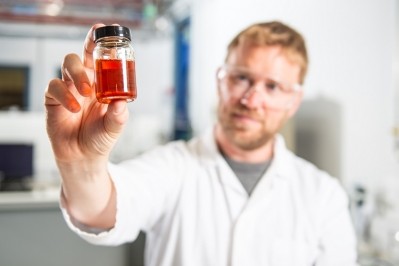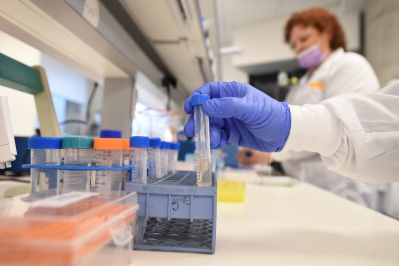Scientists unlocking the power of fermentation for novel, healthy plant-based foods

Fermented foods have a long association with health benefits. But – beyond traditional wisdom – little is actually known about the interaction between fermented foods and human health. Today, for instance, there are few dedicated studies examining the mechanisms behind any impact fermented foods has on health and an in-depth knowledge of how fermentation microorganisms and fermented foods interact with the human gut microbiome is missing.
A new research project, HealthFerm, aims to shed light on this topic and examine how fermentation can be leveraged to develop new sustainable plant-based ingredients.
The four-year effort, which launched today, is jointly funded by the EU’s Horizon Europe Framework Programme for Research and Innovation and the Swiss State Secretariat for Education, Research and Innovation. Its organisers believe it could have a significant bearing on innovation in the plant-based space.
“The research undertaken in HealthFerm will potentially have a wide-reaching impact on not only individual, societal and planetary health, but also the wider EU food industry through greater resource efficiency and increased use of plant-based raw materials,” explained Christophe Courtin, Professor of Food Biochemistry at KU Leuven and coordinator of the project.
Probing fermented foods, the gut microbiome and health
Currently, we reply on spontaneous fermentation processes to develop fermented foods that, we hope, will deliver health benefits.
This is not the most efficient approach. But without evidence of concrete health outcomes and an understanding of how fermented foods support a healthy microbiome, the researchers behind the HealthFerm project say it is impossible to ‘design’ fermented foods with optimal health benefits.
The project therefore aims to identify how fermented foods support human health by developing a better understanding of the interaction between food fermentation microbiomes, fermented grain-based foods and the human gut microbiome.
“Of particular interest to us is also how dietary changes including fermented foods can reduce inflammation and the risk for chronic diseases such as obesity, metabolic syndrome and cardiometabolic diseases,” Prof. Courtin detailed.
The work package focused on health will be led by Prof Kirstin Verbeke of KU Leuven. The researchers will use human intervention studies that compare a plant-based diets incorporating fermented ingredients with standard plant-based diets.
Sustainable plant-based ingredients
At the heart of HealthFerm lies a ‘community-science’ approach, bringing together citizens, artisans and companies who will collect food fermentation microbiomes in Europe and worldwide to be analysed. The scientists will then map the biodiversity of microorganisms used to ferment different foods.
HealthFerm will build on this knowledge to devise novel foodstuffs that improve the sensorial and health benefits of both traditional foods, like sourdough bread, it said. The European researchers also want to support the development of new sustainable plant-based dairy and meat alternatives by addressing some of the challenges faced by the plant-based food sector, including flavour and processing issues.
“Fermentations will alter the sensory profile of raw materials and in some cases generate compounds associated with, for example, umami taste,” Professor Armando Perez-Cueto of the Department of Food, Nutrition and Culinary Science at Umeå University, told FoodNavigator. Prof Perez-Cueto pointed to the example of soy sauce, which is fermented from soy beans and wheat.
The project will focus on legumes, including pea and faba, as well as cereals like wheat and oat. HealthFerm hopes to leverage side streams from the processing of these grains to reduce waste in the food system and boost efficiency.
Consumer acceptance assessed
Prof Perez-Cueto will lead the work package assessing consumer behaviour as part of the project. Evaluating consumer perceptions of fermented plant-based foods will help ensure that the innovations coming out of HealthFerm will deliver the intended impact on human and planetary health, bringing a consumer-centric approach to the R&D efforts.
“We will develop innovative and tasty fermented foods, tested by consumers, counting on the culinary expertise of the partners. We will evaluate changes in consumer acceptance towards fermented plant-based foods at population level through two pan EU surveys. And we will evaluate changes in consumer attitudes, perceptions and taste after experiencing our innovative fermented foods,” Prof Perez-Cueto explained.
The HealthFerm consortium comprises academic, clinical and industrial partners from Belgium, Denmark, Finland, France, Germany, Italy, Romania, Sweden, Switzerland and The Netherlands.

















